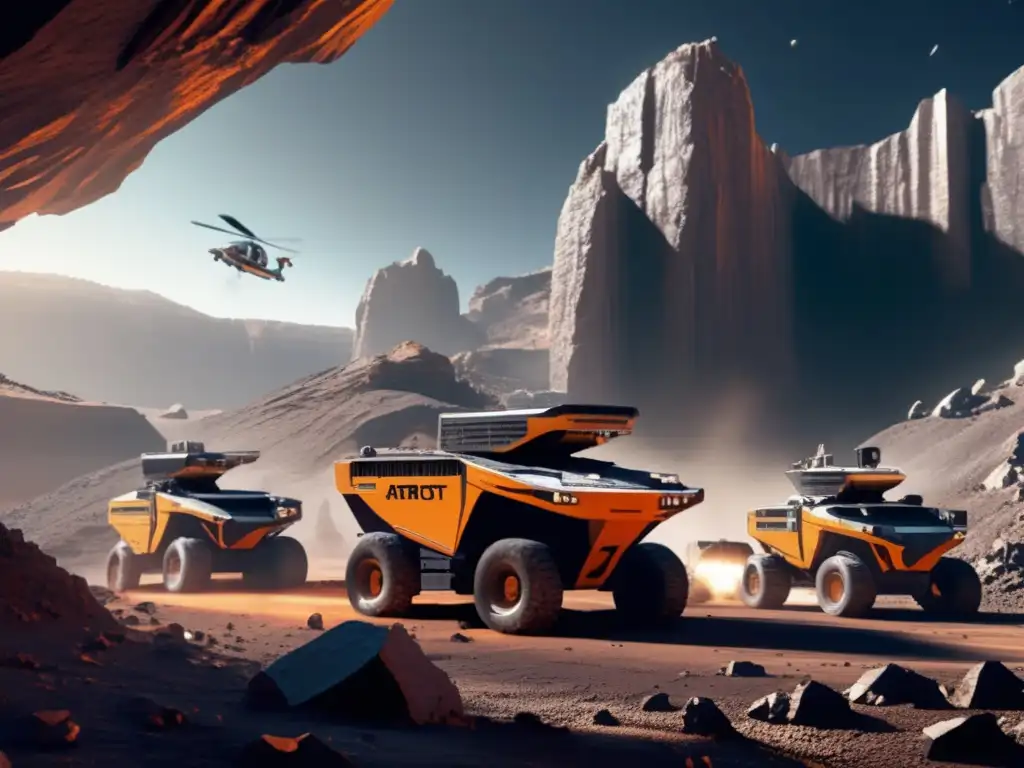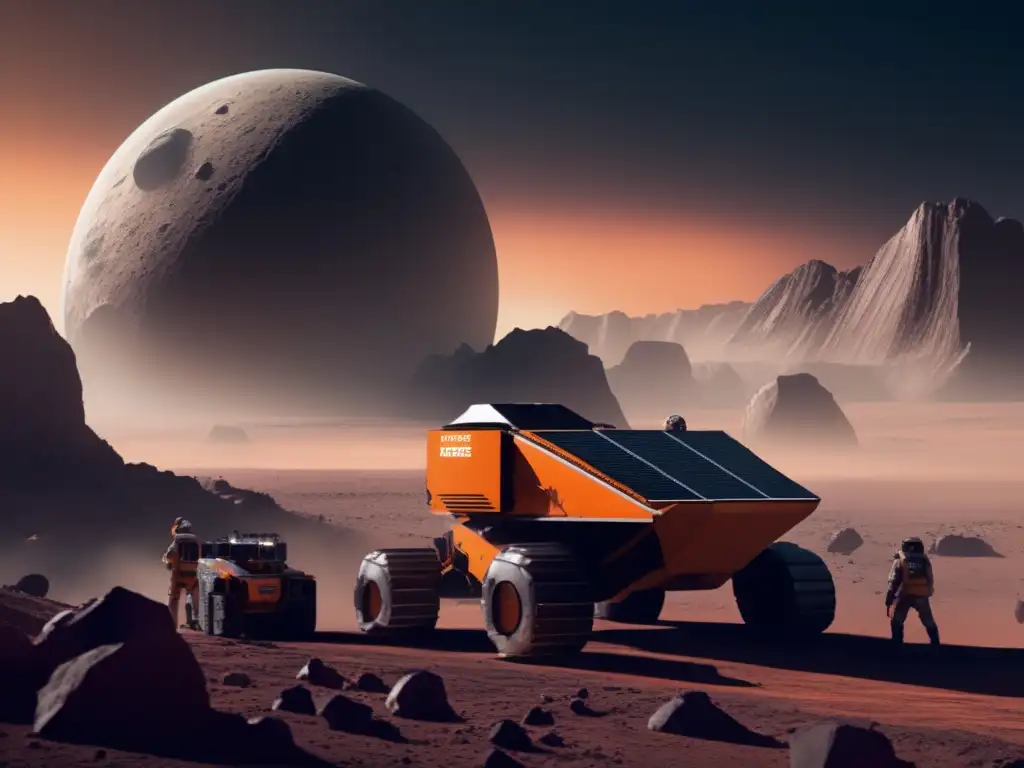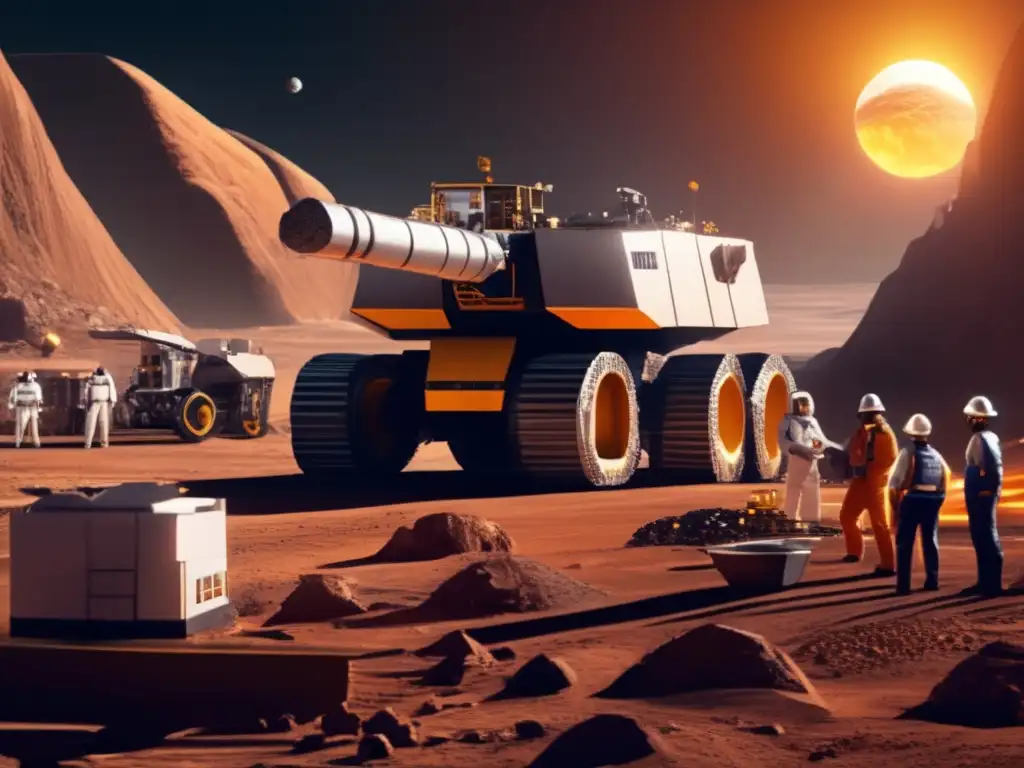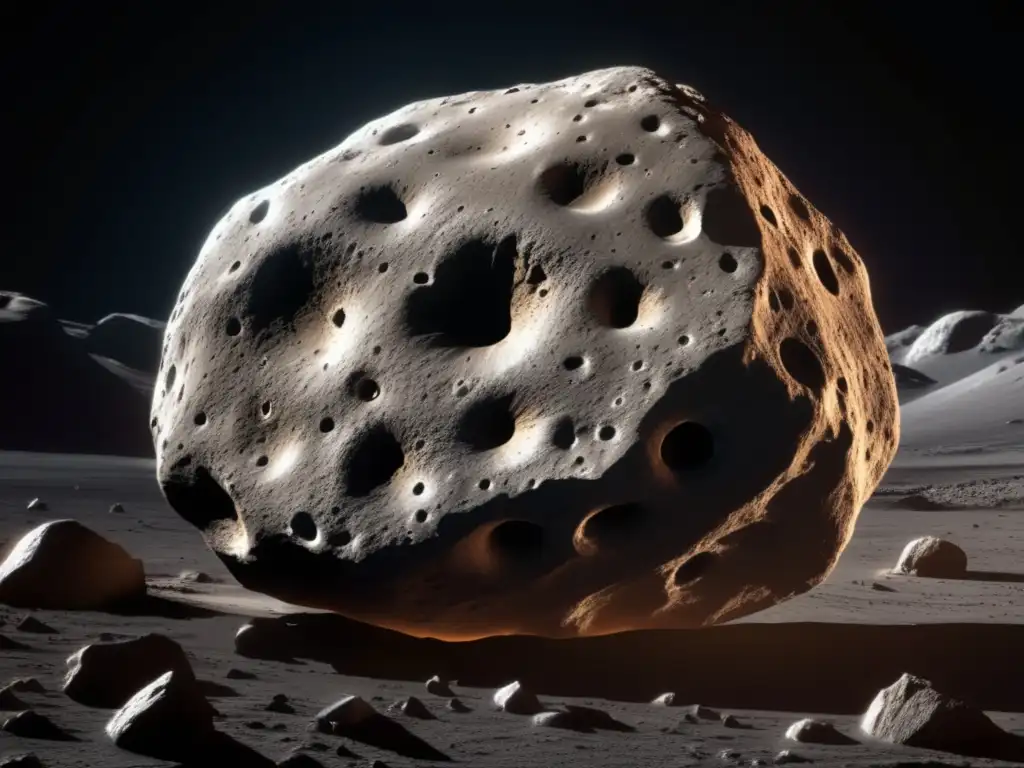Asteroid Mining: Shaping The Future Of Space Legislation

Introduction
In recent years, the idea of asteroid mining has captured the imagination of scientists, entrepreneurs, and space enthusiasts alike. With the potential to provide vast amounts of valuable resources, such as precious metals and rare minerals, asteroid mining offers a new frontier for human exploration and economic growth. However, this emerging industry also raises important questions about the legal framework that governs space activities. In this article, we will explore how asteroid mining is shaping the future of space legislation.
The Current Legal Landscape

The Outer Space Treaty of 1967
The Outer Space Treaty, signed by most countries with space capabilities, serves as the cornerstone of space law. It establishes that celestial bodies, including asteroids, are not subject to national appropriation and should be explored and utilized for the benefit of all nations. While it provided a foundation for space exploration, it did not anticipate the rise of commercial activities in space.
The Commercial Space Launch Competitiveness Act of 2015 (CSLCA)
In response to the growing interest in asteroid mining, the United States passed the CSLCA. It grants United States citizens the right to own and sell resources extracted from asteroids. This legislation was a significant step towards clarifying property rights and encouraging private investment in space resources. However, concerns about its compatibility with international law have been raised.
The Artemis Accords
The Artemis Accords, led by NASA and signed by several countries, aim to establish principles for international cooperation in lunar exploration and resource utilization. While not specifically focused on asteroid mining, these accords address key aspects related to space activities, including mining rights, transparency, and the preservation of space heritage.
Challenges and Debates

<h3.Property Rights and Sovereignty
One of the central challenges in asteroid mining is defining property rights. Can a company or nation claim exclusive ownership over a particular asteroid? The CSLCA provides some clarity on this issue, but the question remains whether national legislation can reconcile with the principles of international law.
Environmental Impact
The extraction of resources from asteroids raises concerns about the potential environmental impact. Could mining operations disrupt the natural balance of celestial bodies? Regulations to mitigate these risks and ensure responsible mining practices are crucial to safeguarding the integrity of space environments.
International Cooperation and Conflict Resolution
Asteroid mining activities require international cooperation to avoid conflicts and ensure fair resource distribution. Establishing clear frameworks for collaboration, property rights, and dispute resolution will be paramount to fostering a sustainable and peaceful future for asteroid mining.

Asteroid mining has the potential to create economic opportunities and wealth, but it also raises questions about social equality. How can the benefits of asteroid resources be distributed fairly among nations and individuals? Addressing these ethical concerns is vital to ensure inclusivity and avoid exacerbating existing economic disparities.
Preservation of Celestial Bodies
As we venture into space, it's essential to consider the cultural and scientific value of celestial bodies. Preserving their natural state and historical significance should be a priority in the development of asteroid mining operations. Balancing commercial interests with the protection of space heritage will require careful thought and regulations.
Workforce and Space Colonization
The growth of asteroid mining will require a skilled workforce capable of operating in space environments. With the potential for long-term colonization efforts, questions arise about workers' rights, living conditions, and the establishment of sustainable communities. Ensuring the well-being and rights of those involved in space mining operations is crucial for creating a successful and ethical industry.
Frequently Asked Questions

-
Can companies or nations claim exclusive ownership over asteroids?
Under current legislation, the United States allows its citizens to own and sell resources extracted from asteroids, but international law remains ambiguous on this matter.
-
What are the potential environmental risks of asteroid mining?
Asteroid mining operations could disrupt celestial bodies' natural balance, necessitating regulations to ensure responsible mining practices.
-
How can the benefits of asteroid resources be distributed fairly?
Fair distribution of benefits among nations and individuals is an ethical challenge that needs to be addressed through international cooperation and inclusive policies.
-
What are the social implications of asteroid mining?
Asteroid mining raises questions about social equality, preservation of celestial bodies, and the rights and well-being of workers in space.
-
How can conflicts related to asteroid mining be resolved?
Clear frameworks for collaboration, property rights, and dispute resolution will be crucial in avoiding conflicts and fostering a peaceful future for asteroid mining.
Conclusion
Asteroid mining holds incredible promise for humanity's future in space. As we venture into this new frontier, it is essential to establish a robust legal framework that balances commercial interests with ethical considerations. Addressing property rights, environmental concerns, international cooperation, and social implications will be critical in shaping the future of space legislation. By fostering collaboration and open dialogue, we can ensure that asteroid mining becomes a force for progress, benefiting all of humanity while preserving the beauty and significance of our celestial neighbors.
Thank you for taking the time to explore the fascinating world of asteroid mining and its implications for space legislation. We encourage you to share your thoughts and engage with the asteroid community at www.asteroidrealm.com. Together, we can shape the future of space exploration and utilization.
Additional Resources

For further reading on the topic of asteroid mining and space legislation, we recommend the following resources:
- The Outer Space Treaty of 1967
- The Commercial Space Launch Competitiveness Act of 2015 (CSLCA)
- The Artemis Accords
 From Earth To Asteroids: Transport Challenges In Space Mining
From Earth To Asteroids: Transport Challenges In Space Mining Futuristic Professions: Careers In Asteroid Mining
Futuristic Professions: Careers In Asteroid Mining The Promising Future Of Asteroid Mining
The Promising Future Of Asteroid MiningIf you want to discover more articles similar to Asteroid Mining: Shaping The Future Of Space Legislation, you can visit the Asteroid Mining and Resources category.
Leave a Reply

Articulos relacionados: